Culture and entertainment
BME also provides a wide range of cultural and recreational opportunities for its students and university citizens. In addition to education and research and development, BME is also committed to providing opportunities for the mediation of cultural values, and various forms of student community building.
Art groups
BME Symphony Orchestra
The BME Symphony Orchestra was founded in 1986. The company has been in continuous operation ever since, except for the year 1945, when it did not give a concert. They hold two rehearsals a week and usually present two new concert programmes per term, mainly in the auditorium of their parent institution, the Budapest University of Technology and Economics. The majority of the members of the orchestra are former or current students of BME, but there have always been and still are students from other universities. Many of them stay with the orchestra after they finish their university studies, so graduate engineers, including university lecturers, are also involved.
The orchestra has performed abroad on numerous occasions, including Transylvania and former Upper Hungary (present South Slovakia), Austria, France, Italy, the Netherlands, and has also hosted university orchestras from abroad. BME celebrated the 240th anniversary of its foundation with a series of events. The institutional jubilee, as well as the 125th anniversary of the BME Symphony Orchestra and the 155th anniversary of the BME Choir, were celebrated with a sold-out concert of grand scale at Müpa in Budapest.
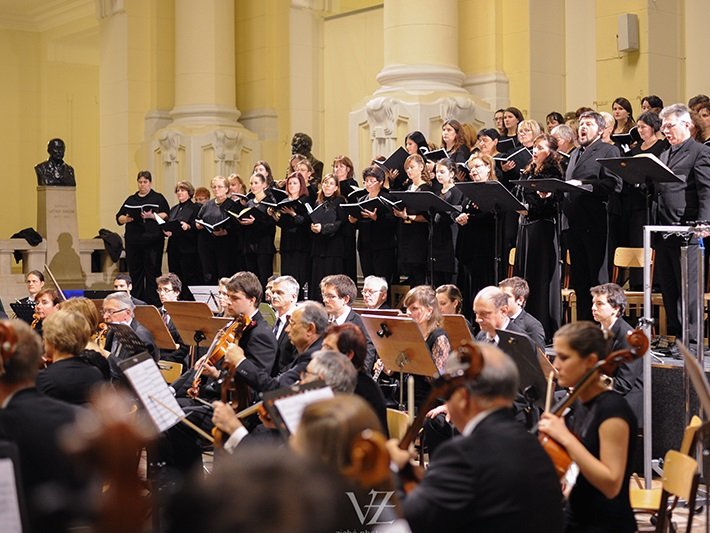
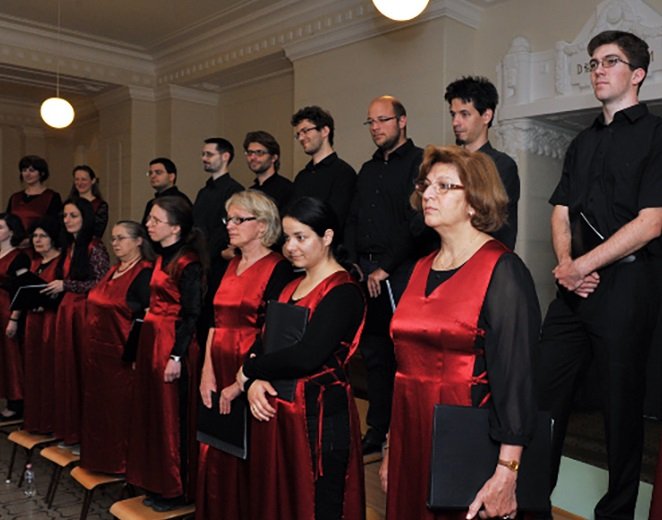
BME Choir
The BME Choir was founded in 1987 under the name BME Ensemble. The company was re-established after the World Wars in 1952 as the BME Choir. The aim of the mixed choir is to promote the cultural life of the university and to represent BME at national and international cultural events, and to raise the quality of university events with the singing of its members. The choir also has an annual joint performance with the BME Symphony Orchestra. The mixed choir currently has 25-30 members, most of whom are affiliated with BME, but there are also members from other of our workplaces, other professions and universities. Among the pieces performed there are religious and secular songs, but the choir also enjoys singing spirituals, madrigals, and 20th century contemporary Hungarian and foreign pieces.
BME Folk Dance Ensemble (MENTE)
In 2001, the predecessor of the BME Folk Dance Ensemble (MENTE) was founded in the Bercsényi Residence Hall as one of the voluntary circles of the Faculty of Architecture at BME. A group of a few enthusiastic, folk dance loving students soon evolved into a dance ensemble with two groups, and then into a university voluntary circle. The company held its first solo evening show in 2009 under the title "Pár-Beszéd", and was invited to the university-affiliated Szkéné Theatre. Shortly afterwards, the company's 3rd dance group was launched. In 2017, the dance ensemble became one of BME's voluntary cultural groups, so it could continue its activities within the university framework rather than the faculty.
The aim of MENTE is to teach and present folk dances of the Carpathian Basin, primarily Hungarian folk dance, on a native level, to build cultural community, and to revive and evoke Hungarian folk traditions, even in urban settings. It also strives to evoke folk traditions such as carnivals, pig slaughtering feasts, the Easter holidays, customs related to harvest work and Christmas traditions.

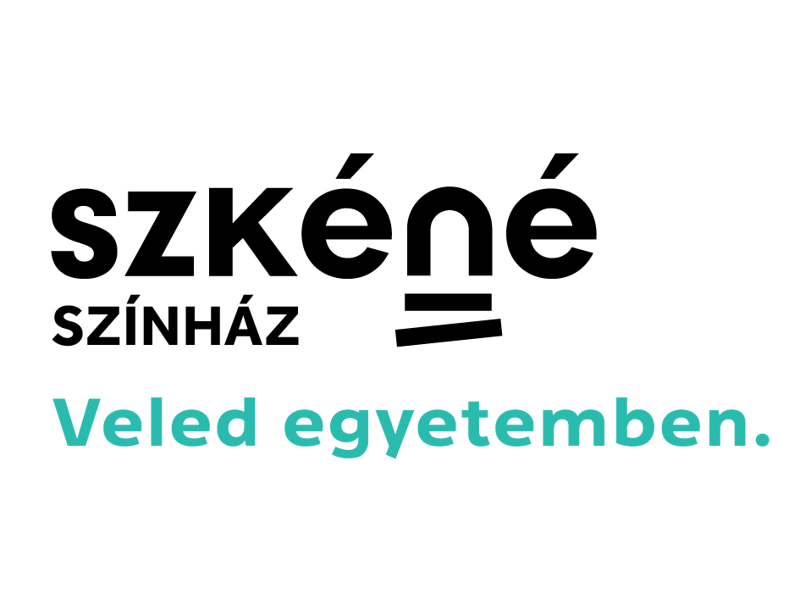
Szkéné Theatre
Szkéné Theatre operates in the central building of BME. The aim of the theatre is not only to attract students, but also to seek out and support artists of outstanding artistic merit, and to establish long-term collaborations and co-productions. The theatre welcomes audiences with a friendly, professional hospitality attitude, offering discounts, season tickets and opportunities for online purchase to help grow its audience base. Its artistic concept is to enrich the artistic events offered by the city of Budapest, more precisely, the 11th district, with education, children's shows, initiative theatre programmes, exhibitions and festivals.
Szkéné Theatre has been the starting point for the careers of many artists who are now well-known. This is where Krétakör started, and Szkéné Theatre is also the base for Béla Pintér and Company, who are now one of the best-known independent companies beyond our borders. They will be joined by names and teams such as Forte Company, Vádli Occasional Theatre Company, Nézőművészeti Kft. or the youngest K2 Theatre. The theatre, which meets the requirements of the 21st century, has a mobile auditorium with a capacity of 150 spectators, modern technical equipment, and a panoramic reception and exhibition hall overlooking the Danube.
BME University Days
Every year in September, the capital's biggest student festival is held, with record-breaking attendance each year. The BME University Days feature a wide repertoire of music, cultural programmes, activities by partner companies and presentations by various university leisure and study communities.
The festival will be accompanied by the BME Sports Day, combined with a Rector’s break, offering a wide range of sports activities for young people who intend to do sports individually and in teams at the BME Sports Complex and the BME Sports Centre.
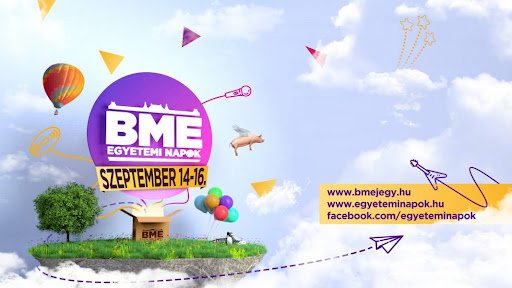

Műhely
Műhely (“Workspace”) is the official magazine of the BME University Students’ Representative Council. Founded in 2003, the aim of the magazine is to provide information at a professional level and to a high standard worthy of BME about news concerning the university, public events of major interest, to present student and alumni portraits, and to give students the opportunity to express their writing talent. The journalists are also mainly students.
University clubs

HaBár Entertainment and Experience Centre is located in the basement of the Baross Gábor Residence Hall.

Bercsényi Gödör Klub is located in the basement of the Bercsényi 28-30. Residence Hall. It is the favourite venue of architecture students, hosting different themed events every Thursday, as well as providing a venue for up-and-coming bands.

Kármán Klub, a popular meeting place for students of mechanical engineering, is located on the ground floor of the Tódor Kármán Residence Hall.

The staff of Old's Club, founded in 1986, organizes a fun-filled recreational event at the Kármán Tódor Residence Hall every second Thursday of the week.

The Martos Flora Residence Hall is home to the Martos Foosball Club, where, in addition to sports broadcasts, fans of pub sports can enjoy three Garlando Olympic Silver and a compact two-person foosball table, which are serviced daily.
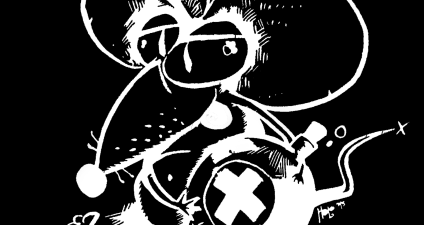
Drönk was established in 1968 in the basement of "B" building of the Vásárhelyi Pál Residence Hall. It is a music-packed, intimate club, and a popular base for students of civil engineering.

The namesake of the Palibácsi circle, founded in 2002, is also the namesake of the residence hall. Every fortnight on Thursdays (alternating with the Vásárhelyi Klub), the circle organises musical events in the residence hall.

Vásárhelyi Klub is one of the oldest voluntary groups of the Vásárhelyi Pál Residence Hall, which hosts musical events in the residence hall every two weeks on Thursdays (alternating with Palibácsi). Each event is organised around a previously chosen theme.

WhiteFÜL Klub is a long-established club of the Vásárhelyi Pál Residence Hall, organizing live music concerts. The club was started by residents who wanted to provide a space for great quality music in the residence hall. Lately, the musical palette has become quite broad, with rock, underground, folk blues and jazz bands performing.

Roller Club is a club in the basement of the Wigner Jenő Residence Hall, where students of the Faculty of Economic and Social Sciences and the Faculty of Natural Sciences of BME can party locally.
